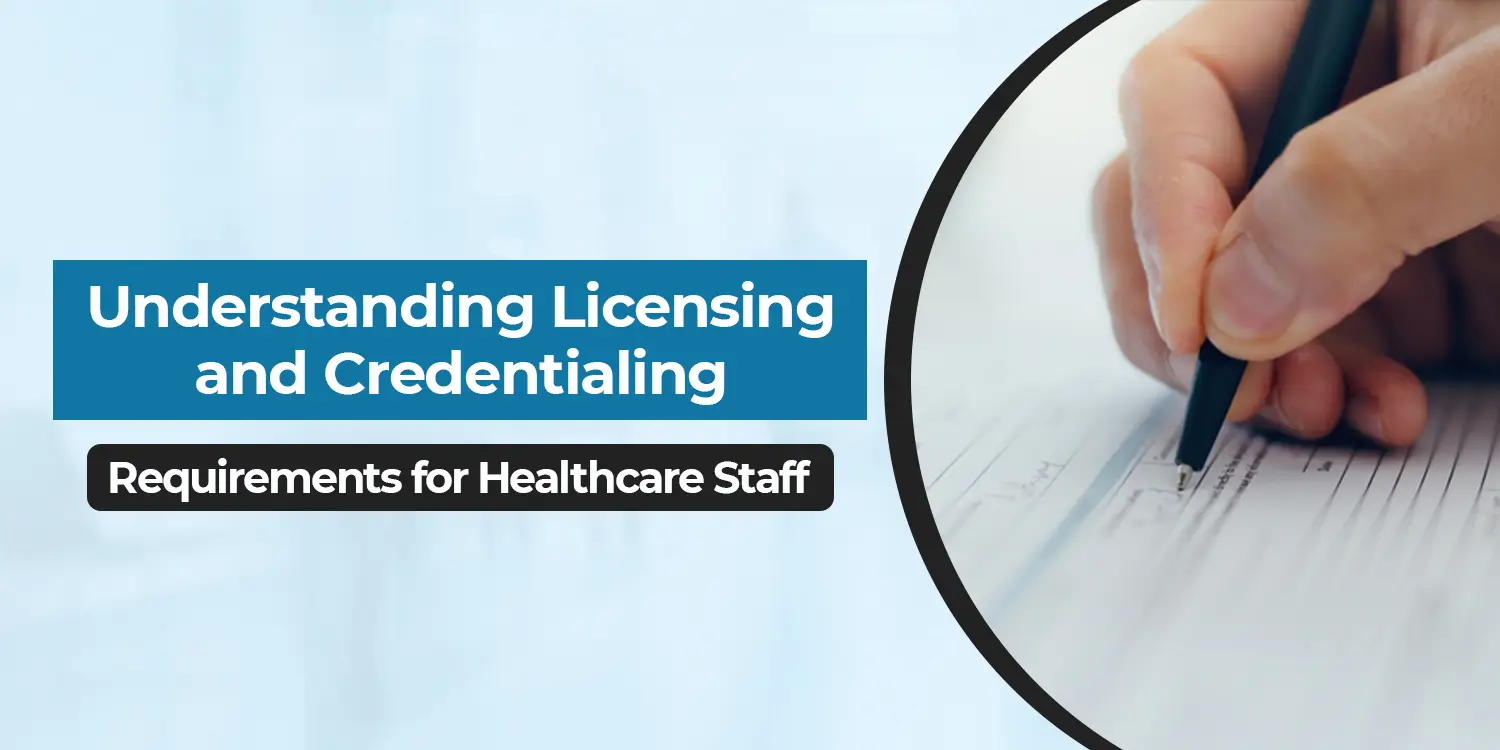The healthcare industry is one of the most regulated fields in the world, and for good reason patient safety depends on qualified, licensed, and verified professionals. Whether it’s doctors, nurses, or allied health workers, the requirements for healthcare staff are strict and multifaceted. Hospitals, clinics, and private practices must follow a systematic process to ensure every member of their medical team is properly credentialed, licensed, and compliant with governing regulations.
In this article, we’ll break down the essentials of licensing and credentialing, explain why these processes matter, and highlight the steps every organization must take to maintain compliance.
Why Licensing and Credentialing Matter in Healthcare
At the heart of healthcare lies trust. Patients put their lives in the hands of providers, so it’s critical to verify that those providers are properly trained and certified. Healthcare licensing requirements safeguard the public by confirming that professionals meet the legal and ethical standards to practice medicine.
Credentialing, on the other hand, is the process of validating qualifications beyond the license. It involves reviewing education, training, residency, board certifications, and even past malpractice claims. Together, these steps protect patients and create a foundation of reliability for healthcare organizations.
The Core Requirements for Healthcare Staff
Every role in healthcare comes with specific standards. While the requirements for healthcare staff vary by profession, some common expectations include:
- Licensure: Physicians, nurses, and other clinicians must hold a valid state license. This is often renewed periodically to ensure ongoing compliance.
- Certification: Many specialties require board certifications or additional credentials, especially in fields like surgery or anesthesiology.
- Background checks: A clean professional history, including verification of prior employment, malpractice records, and disciplinary actions, is essential.
- Education and training verification: Degrees, diplomas, and residency programs are confirmed through accredited institutions.
- Ongoing education: Most states mandate continuing education to keep skills sharp and knowledge updated.
Without these verifications, healthcare organizations risk fines, reputational damage, or worse compromised patient safety.
Diving Into the Medical Credentialing Process
The medical credentialing process is both rigorous and methodical. Hospitals and clinics use it to ensure that a provider is truly qualified to deliver care. Here are the main stages:
- Application submission: Providers submit personal and professional details, including licenses, certifications, and education records.
- Primary source verification: Credentialing teams confirm information directly with universities, licensing boards, and certifying bodies.
- Committee review: Hospital committees review the applicant’s qualifications against medical staff credentialing standards.
- Approval and privileging: Once approved, providers are granted “privileges,” which define what procedures and treatments they are allowed to perform.
This system helps maintain consistent, high-quality standards across healthcare organizations.
Physician Licensing and Certification
Doctors face some of the most stringent requirements for healthcare staff. Physician licensing and certification involve:
- State medical board approval
- Successful completion of the USMLE or COMLEX exams
- Residency program verification
- Specialty board certifications for advanced practices
In addition, physicians must stay current through continuing medical education (CME) to retain their licenses and board certifications.
Nursing License Verification
Nurses, who are often the backbone of healthcare delivery, must undergo nursing license verification before they can practice. States use online systems such as Nursys to confirm credentials quickly. Employers must also verify renewal status, continuing education credits, and any disciplinary actions.
This diligence ensures nurses are fully qualified to provide patient care, whether in hospitals, long-term care facilities, or home health environments.
Hospital Staff Credentialing and Compliance
For hospitals, hospital staff credentialing is not optional it’s a legal requirement tied directly to healthcare compliance and regulations. Accrediting bodies like The Joint Commission demand strict adherence to credentialing protocols.
Failure to comply can result in penalties, loss of accreditation, or even closure. This makes credentialing not just a formality, but a critical operational necessity.
Challenges and Complexities
While the goals of licensing and credentialing are straightforward, the process itself can be cumbersome. Delays, missing paperwork, and inconsistencies across state lines often cause frustration. Small practices may struggle with the administrative burden, while large hospitals must coordinate credentialing for hundreds of employees simultaneously.
That’s why many organizations partner with specialized firms like JR Enterprise, which help streamline the verification process, reduce errors, and maintain compliance with changing healthcare licensing requirements.
Ensuring Compliance with Medical Staff Credentialing Standards
Regulatory oversight is constantly evolving. Staying compliant with medical staff credentialing standards means keeping up with state laws, federal requirements, and accreditation guidelines. Organizations must establish systems that not only handle initial credentialing but also track re-credentialing and ongoing license renewals.
Automation, centralized databases, and third-party verification services can help healthcare organizations stay ahead of compliance demands.
Conclusion: Building a Safer Healthcare System
The requirements for healthcare staff may seem daunting, but they exist for an essential reason: to safeguard patients and ensure quality care. From physician licensing and certification to nursing license verification and hospital staff credentialing, each step plays a vital role in maintaining a strong healthcare system.
By following clear processes and partnering with trusted compliance experts like JR Enterprise, healthcare organizations can stay aligned with healthcare compliance and regulations, protect their reputation, and most importantly deliver safe, reliable care to every patient.


Leave A Comment